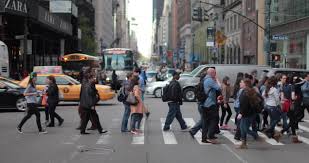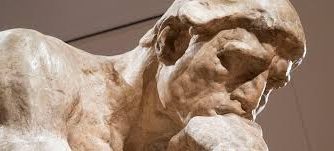Walking is one of the most rewarding forms of exercise, physically, mentally and spiritually. You can walk and pray, you can walk and socialize with a walking buddy. You can strengthen the body, heart and mind. It’s inexpensive and handy—just lace up those walking shoes, step outside and hit the road.
So, with all of these phenomenal benefits, why would I say that there might be a reason for when you shouldn’t walk?
Today I’m going to cover one big one.
You need to rethink walking for exercise if you are an urban dweller.
A 2016 University of Cambridge study published in Preventive Magazine indicated that the benefits of walking in polluted city air far outweighed the negatives. But they used a computerized health model, not real people for their research.
Now a new study published in The Lancet, one of the world’s oldest and best-known, peer-reviewed medical journals, suggests that where you choose to walk does matter.
What happens when you walk those city streets—
Researchers found that walking along heavily polluted streets does cancel out many of walking’s benefits.
The researchers gathered 119 people, all over the age of 60. Of this group, 40 of them were considered healthy, 40 had diagnosed chronic obstructive pulmonary disease (COPD), which is a chronic inflammatory lung disease, and 39 had ischemic heart disease, a condition caused by artery narrowing that reduces blood flow and oxygenation to the tissues.
Then the researchers gave them their walking assignments. Some were instructed to walk two hours a day along London’s Oxford Street, a downtown road heavily traversed by buses and cars. The other group spent two hours strolling through a quiet part of London’s Hyde Park.
After each workout, the researchers measured the pollution concentration in each location and then measured the following health markers in the participants:
- lung capacity
- breathlessness
- wheezing
- coughing
- arterial stiffness (related to high blood pressure).
What do you think the researchers discovered?
If you think that walking in Hyde Park allowed the walkers to experience better health, you’d be partially right. Actually, they experienced big improvements in lung capacity and arterial stiffness.
After the participants walked along Oxford Street, inhaling its air pollutants, they experienced modest improvements in their lung capacity, but they experienced a worsening of arterial stiffness. Those findings led the researchers to suggest that the poor air quality negated many of walking’s benefits.
What about the COPD walkers? While they did experience some lung capacity improvements during their walks in both locations, the researchers considered the improvement to be negligible.
But the walkers with COPD demonstrated more respiratory issues, like coughing, wheezing, and shortness of breath, after walking Oxford Street. They also ended up with more arterial stiffness.
The walkers with heart disease also suffered in the polluted urban environment. Unless they were taking cardiovascular drugs, which appeared to offer some protection against the bad air, they suffered more severe arterial stiffness.
Kian Fan Chung, lead researcher and professor of respiratory medicine at Imperial College London’s National Heart and Lung Institute, said, “You should avoid polluted areas for doing any form of exercise, specifically walking.” He added that if an outdoor, less-polluted green space is not available, then you should probably exercise indoors.
And I think even suburban dwellers need to think carefully about when and where they walk around their neighborhoods.
Case Study—
Within the last thirteen months, I’ve suffered and recovered from a decent bout of pneumonia and been diagnosed with lung nodules. Not large enough yet to be considered cancerous, but still there, and disconcerting. My once clean lungs have caused me to rethink, re-plan, and re-execute my neighborhood-walking program.
After trying both late afternoon and morning walking programs, I’ve discovered the times people are usually leaving for work, which means I get to inhale a lot of carbon monoxide fumes and burned gasoline byproducts if I walk when they drive. I usually end up feeling worse when I arrive home. And I cough a lot.
So when the weather was cooler, I’d wait until after 9:00 AM to walk, or walk around 3:00, before the coming-home rush. That worked well for several months.
But now it’s HOT, and I can’t handle walking in the blazing inferno here in Tucson. (I’m a beach babe by design, not a desert rat.) So I needed to alter my walking times again.
On the weekend, the engineer and I roll out of bed at 4:30 AM, get dressed and drive to a local mountain to walk while the sun’s rising and for about an hour after it starts warming up the desert floor. At a 2.25 mph pace (this mountain’s grade is STEEP!), we can do the 2.9 miles up and back in about an hour and twenty minutes. But now we’re walking up, back, up halfway and then back down to increase our mileage and stamina for our hike over the Pyrenees for our Camino pilgrimage.
On weekdays, we’ve switched to strapping on our headlamps and walking at night around our neighborhood. We’ve discovered that garden spiders are nocturnal and have the most glorious, prism-like eyeballs that reflect our light beams! Sometimes we even catch cottontail bunnies or a pack rat enjoying the cooler night air. And we can also see the airborne dust particles floating across the light beams. We’re stunned at how much dust floats around us that we never see! But it’s a truly lovely time of day to walk.
But when it’s windy here and the dust is really flying, I head to the gym to walk on a treadmill. I’m allergic to dust (really), and it’s one of the environmental issues that will clog up my respiratory track and flatten me within hours. This year, thank the Lord, is the first time in three or four springs that I have NOT succumbed to dust-triggered bronchitis or pneumonia!
I think my new training plan is reaping benefits!

How about you?
Where and when do you usually walk (run or bike), and is it a potential health hazard for you?
Would it be possible for you to drive to a green belt location or park to walk instead of walking vehicle-clogged city streets?
Start monitoring your breathing after walking in different environments, and maybe measuring your blood pressure.
NEXT WEEK: More on walking, and finding green space to enjoy it!
Until then,
Happy walking, wherever it may be!
Andrea
May you prosper in all things and be in health, just as your soul prospers (3 John 2).
Photos courtesy of Google Images



